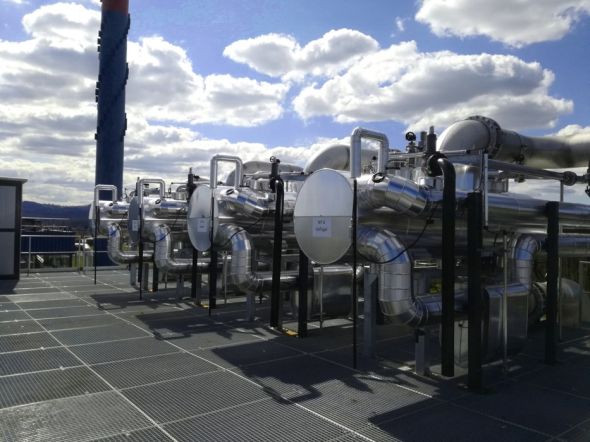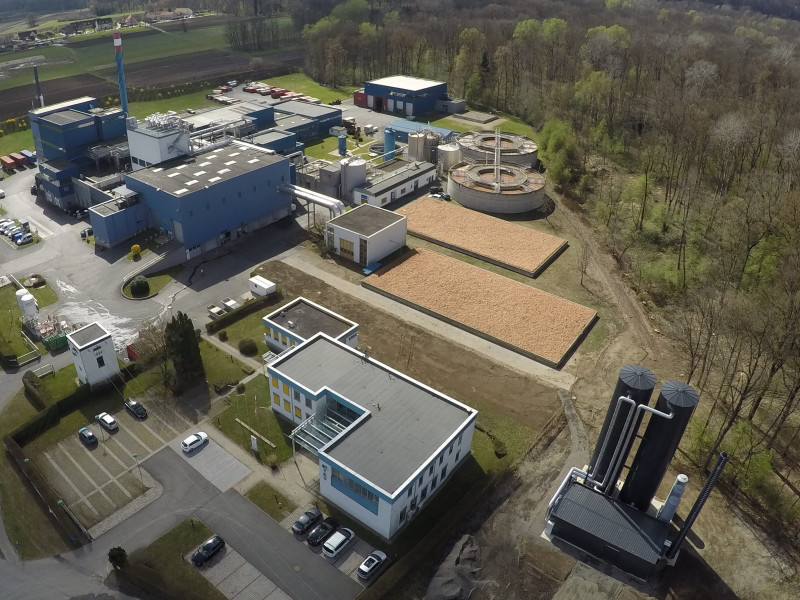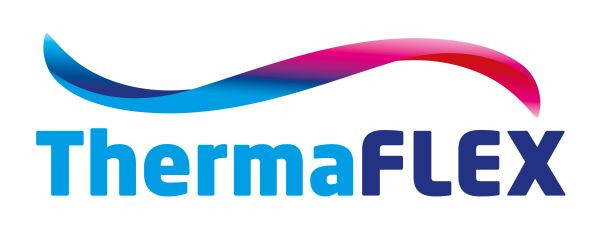ThermaFLEX: Thermal demand and supply as flexible elements of future sustainable energy systems
More flexibility for more renewables in district heating networks - the lead project "ThermaFLEX".
Starting point
In current discussions about the decarbonization of energy supply, many people are not aware that the demand for indoor climate and hot water accounted for 27% of Austria's total energy demand in e.g. 2019. A quarter of this is provided by heating networks, which means that the local and district heating sector plays a central role in Austria's energy supply.
Its development towards more sustainability will lead to increased system complexity due to:
- the integration of large shares of renewable, sometimes volatile energy sources,
- sector coupling with the electricity and gas grids,
- decentralized energy conversion structures.
At the same time, however, security of supply must be guaranteed and energy costs must remain affordable for end customers. This can only be achieved through increased flexibility of the overall system and intelligent interaction of the elements.
About the ThermaFLEX project
This is exactly what the lead project "ThermaFLEX" is dealing with within the showcase region "Green Energy Lab". No fewer than 27 project partners (district heating network operators, technology providers and research institutions) are working on the identification, simulation-based planning and evaluation of flexibility measures. Concrete implementations are monitored and optimized over the long term. The focus is on seven demonstrators in district heating supply areas of small, medium and large cities.
Our role in the project
BEST - Bioenergy and Sustainable Technologies GmbH is mainly responsible for the optimized operation of the interconnection of several smaller local heating networks in the demo project "100% Renewable District Heating Leibnitz".
The aim is to make optimum use of waste heat from a rendering plant by supplying a neighboring local heating network at times when there is a surplus. If, on the other hand, there is not enough waste heat available, ecological heat from biomass should help to avoid the use of the fossil peak load boiler.
The optimal management of thermal storage in each network requires forecasting methods to estimate the expected heat demand as well as the available waste heat. Optimization algorithms based on these ensure that not too little or unnecessarily much heat is exchanged between the networks and that operation is optimized both ecologically and economically for both operators.
Final report: https://greenenergylab.at/wp-content/uploads/2023/09/thermaflex-publizierbarer-endbericht-eng-barrierefrei-final.pdf
Projektvolumen
EUR 4,578.347,--
Projektlaufzeit
2018-11-01 - 2022-11-01
Supported by
FFG Programm “Vorzeigeregion Energie” als Initiative des Klima- und Energiefonds Österreich und des Bundesministerium für Verkehr, Innovation und Technologie
Projektpartner
AEE INTEC (Koordinator)
FH JOANNEUM www.fh-joanneum.at
StadtLABOR Innovationen für urbane Lebensqualität GmbH www.stadtlaborgraz.at
Technische Universität Graz - Institut für Wärmetechnik www.tugraz.at
Stadtwerke Gleisdorf GmbH www.stadtwerke-gleisdorf.at
S.O.L.I.D. Gesellschaft für Solarinstallation und Design m.b.H. www.solid.at
WIEN ENERGIE GmbH www.wienenergie.at
Technische Universität Wien - Institut für Energiesysteme und Elektrische Antriebe www.tuwien.at
Feistritzwerke-STEWEAG-GmbH www.feistritzwerke.at
JOANNEUM RESEARCH Forschungsgesellschaft mbH www.joanneum.at
AIT Austrian Institute of Technology GmbH www.ait.ac.at
Salzburg AG für Energie, Verkehr und Telekommunikation www.salzburg-ag.at
Rotreat Abwasserreinigung GmbH www.rotreat.at
SIR – Salzburger Institut für Raumordnung und Wohnen www.salzburg.gv.at/sir
Alois Haselbacher Gesellschaft m.b.H. www.haselbacher.at
Energie Steiermark AG www.energie-steiermark.at
Horn Consult
ENAS Energietechnik und Anlagenbau GmbH www.enas.at
Pink GmbH www.pink.co.at
GREENoneTEC Solarindustrie GmbH www.greenonetec.com
STM Schweißtechnik Meitz eU www.stm-meitz.at
Green Tech Cluster Styria GmbH www.greentech.at
FRIGOPOL Kälteanlagen GmbH www.frigopol.com
Abwasserverband Gleisdorfer Becken www.awv-gleisdorf.at
Schneid Gesellschaft m.b.H. www.schneid.at
Nahwärme Tillmitsch GmbH & Co KG www.haselbacher.at/nahwaerme
Contact

Daniel MUSCHICK
daniel.muschick@best-research.eu
Area Management

Markus GÖLLES
markus.goelles@best-research.eu
Publications
Betrieb verbundener Nahwärmenetze mit getrennten Eigentümern
Operation of Coupled Multi-Owner District Heating Networks via Distributed Optimization
Operation of coupled multi-owner district heating networks via distributed optimization
Optimal operation of cross-ownership district heating and cooling networks
Distributed Optimization Methods for Energy Management Systems


